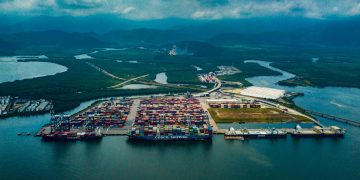The Digital Container Shipping Association (DCSA) has announced the release of the final versions of its Booking 2.0 and Bill of Lading 3.0 standards.
The updates will streamline data exchange between shippers and carriers, significantly reducing administrative burdens, minimising errors, and cutting costs across the industry.
The enhanced standards introduce features that bolster security, regulatory compliance, and efficiency:
- Enhanced security through the addition of a digital signature to the electronic Bill of Lading (eBL), ensuring integrity, authenticity, and non-repudiation of the eBL content provided by the carrier to the eBL solution provider.
- Increased levels of compliance with the introduction of 190+ attributes to the Shipping Instructions to support Import Control System 2 (ICS2), the new advance manifest requirement for all cargo moving to or through the EU, Norway, Switzerland or Northern Ireland.
- Greater visibility underpinned by the ability to provide notifications including the full content of a booking, shipping instructions or transport document, reducing network traffic and improving business process latency for all involved parties.
By eliminating the need for costly, customised IT integrations, these standards aim towards greater profitability and efficiency across shipping. Fully digitised data exchange between carrier systems and Transport Management Systems (TMS) will reduce reliance on OCR solutions, saving time and resources.
The adoption of the finalised standards will also improve sustainability efforts, significantly cutting paper usage by encouraging greater uptake of electronic Bills of Lading (eBLs).
We are thrilled to launch the final versions of our Booking and Bill of Lading standards, ensuring seamless data exchange across all industry participants. These advancements will not only cut costs through automation and reduced manual processing but also set the foundation for a more interoperable and efficient global shipping ecosystem.
…said Thomas Bagge, CEO, DCSA.
Bagge continued by commenting that this is a further step to set the technological foundation for more interoperable solutions and drive recognition of the value of standardisation across the maritime industry.
In an exclusive interview to SAFETY4SEA, Thomas Bagge, CEO of DCSA, emphasized that the shipping industry must adopt digital transformation to improve efficiency and reduce waste. Looking ahead, DCSA commits to further enhance interoperability, ensuring the secure exchange of eBLs among trading partners, regardless of the eBL platform they use.


































































